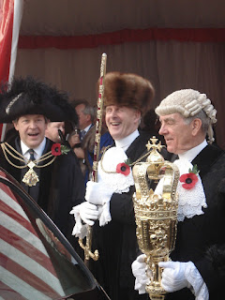Robert Poynings
Robert Poynings
 Robert is an interesting character, probably a little self obsessed and not a nice husband, but that is judging him from todays viewpoint. Whatever his personal traits, he and his situation is complex but also interesting in regards to the rebellion.
Robert is an interesting character, probably a little self obsessed and not a nice husband, but that is judging him from todays viewpoint. Whatever his personal traits, he and his situation is complex but also interesting in regards to the rebellion.
Childhood
Robert was born about 1419, second son of Baron Robert Poynings (5th Baron) and and Eleanor Grey (daughter of another Baron) [ simplified note of peerage systemof England in ascending rank – Baron – Viscount – Earl – Marquess – Duke]. His father married his second wife Margaret Squery, who was the widow of William Crowmer, the Lord Mayor of London.
Sibling Rivalry
When his father married his Second wife, Robert not only got a new step mother, but he also got a new step brother, William Crowmer (major charactor click here to go to page). How the relationship went or possibly deteriorated I have not seen, but there definitely was rivalry. Crowmer got items/land holdings that Poynings believed he was entitled to have, but it would seem as if William Crowmer received the “lion’s share” and Robert was, I assume, a little put out!
Adulthood
Robert made his way in the world and was known as an esquire of Twineham and Sutton, so it would seem as if he had at least two places he could call home as Twineham is near Burgess Hill and Sutton north of Arundel, but both being in Sussex. Although he had nowhere reached the dizzy heights of his step brother, he none the less was doing ok, on June 22nd he received a commission from the King to….”to take a posse of the counties of Kent, Surrey and Sussex and arrest and bring before the king and council certain persons naming themselves soldiers at Edynbridge (Edenbridge Kent) and other places in the counties and committing spoiliations and robberies on the King’s lieges there.
Joins Cade’s Army
If Robert bothered going to Edenbridge or even bothered to raise a posse is not known, but he joined Cade and his men at Blackheath, Kent. Perhaps with his relatively respectable nobility and maybe because he disliked William Crowmer as much as everyone else there he was accepted as an important person within Cades camp. Perhaps Jack Cade thought it funny to have the step brother of one of the most despised people in England as one of his group entertaining, or politically expedient, who knows?
John Payn
How high Jack Cade thought of him was shown when a man called John Payn, was caught near the camp at Blackheath, whilst on a mission from Sir John Fastolf to find out the intention of the mob encamped at Blackheath. John was caught and accused of being a spy and was threatened with execution. John pleaded for his life and said that he had relatives within Cades camp and several men spoke up for John, one of them included Robert. There is one book which reports Robert was Johns Brother in law but I have to see that corroborated yet… John was let off and sent away with a petition stating their demands (possibly the one that can be found in Magdalen College, Oxford), and to return with armour. When Payn returned (this time Cades army was encamped in Southwark) without any armour and Fastolf’s men had fled to the safety of the tower, he was once again threatened with execution. Once again Robert spoke up for him and he was allowed back into the encampment, but was watched from now on. The details of these meetings was explained in a letter John wrote to the Paston’s and can be found here (pdf). Note the letter was written 15 years after the event, there is no record of any reply.
Sword-Bearer 
If further proof was needed as to whether Robert was trusted by Jack Cade, he became Cades carver and sword-bearer. When the army paraded around London in the style of Lord Mayor, Robert was in front of the procession holding up the sword as a sign of authority (and assimilation). With the King gone and the council in submission, Cades army was in control and Robert would have not been far from Cade. Robert took the time whilst in London, to raid his step brothers houses and rectify all the earlier slights he believed he had received.
After the Rebellion
Robert and Jack Cade parted ways after they left London, both presumably to carry on the insurgence elsewhere (or to make for foreign shores). Jack Cade was caught in Heathfield, Sussex, but Robert continued rabble rousing for many years after the event, occasionally seeking sanctuary within the walls of Westminster Church. His personal rebellion seems to have stopped in 1454 which is probably linked to Richard of York taking over as protector of the realm. He was finally pardoned in 1458, the same year he married into the Paston Family, hence the earlier letter written by John Payn to the Paston’s. He was then killed in the second battle of St Albans in 1461 (as a Yorkist) and is buried there.
